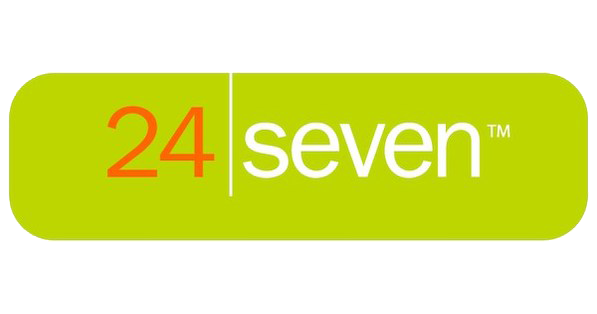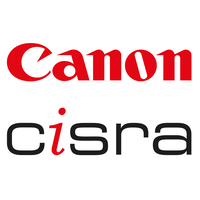Software as a Service (SaaS) platforms have gained significant popularity in recent years, revolutionizing the way businesses deliver and consume software applications. SaaS platforms provide web-based applications and services that are centrally hosted and accessible to users over the internet. Here, we will explore the significance of SaaS platform development and how WNPL can assist you in building a robust and scalable SaaS platform.
The Significance of SaaS Platform Development
SaaS platforms offer numerous benefits for businesses, including:
- Scalability and Accessibility:
SaaS platforms allow businesses to scale their applications effortlessly to accommodate growing user bases and changing business needs. Users can access the platform from any location with an internet connection, facilitating seamless collaboration and remote work.
- Cost Efficiency:
SaaS platforms eliminate the need for upfront hardware and software investments, as well as ongoing maintenance and infrastructure management costs. Users pay for the services they consume on a subscription basis, enabling predictable budgeting and cost savings.
- Continuous Updates and Improvements:
With SaaS platforms, updates, patches, and feature enhancements are rolled out automatically by the provider. This ensures that users always have access to the latest version of the software, with bug fixes and new features readily available.
- Easy Integration and Customization:
SaaS platforms often provide APIs and integration capabilities, allowing businesses to connect the platform with other software systems and services. This facilitates data sharing, workflow automation, and seamless integration within the existing technology stack.
- Security and Data Protection:
SaaS providers typically invest in robust security measures to protect customer data. They implement industry-standard security protocols, data encryption, access controls, and regular security audits to ensure the confidentiality and integrity of user information.
SaaS Platform Development Services by WNPL
At WNPL, we specialize in developing scalable and customizable SaaS platforms that cater to your specific business requirements. Our experienced development team offers a range of SaaS platform development services, including:
- Business Analysis and Requirements Gathering:
We work closely with you to understand your business needs, target audience, and goals for the SaaS platform. Our team conducts a thorough analysis to define the platform's features, functionalities, and user experience.
- Architecture and Database Design:
We design a scalable and secure architecture for your SaaS platform, utilizing appropriate technologies and frameworks. Our database design ensures efficient data storage, retrieval, and management, while adhering to data privacy regulations.
- Multi-Tenancy and User Management:
We implement multi-tenancy architecture, allowing multiple users or organizations to access and use the platform while maintaining data segregation and security. We develop robust user management features, including user registration, authentication, and role-based access control.
- Customization and Integration:
We develop the SaaS platform with customization capabilities, allowing users to tailor the application to their specific needs. We integrate the platform with external systems, such as CRM, ERP, or payment gateways, to streamline business processes and data exchange.
- Subscription Billing and Payment Integration:
We incorporate subscription billing functionality into the SaaS platform, allowing you to offer different pricing plans and manage customer subscriptions. We integrate secure payment gateways to facilitate seamless and secure payment transactions.
- API Development and Integration:
We design and develop APIs that enable integration with third-party applications and services. This enables extensibility, data sharing, and integration with external systems, fostering a seamless user experience and expanding the platform's capabilities.
- UI/UX Design and Front-End Development:
We create intuitive and visually appealing user interfaces (UI) for the SaaS platform. Our team focuses on delivering a user-friendly experience, responsive design, and efficient workflows to enhance user satisfaction and productivity.
- Testing and Quality Assurance:
We conduct thorough testing and quality assurance processes to ensure the reliability, performance, and security of the SaaS platform. This includes functional testing, performance testing, security testing, and compatibility testing across different devices and browsers.
- Deployment and Support:
We assist with the deployment of the SaaS platform to a production environment, ensuring a smooth transition. We provide ongoing support, maintenance, and updates to ensure the platform's optimal performance, security, and scalability.
Practical implementations
Here are some practical implementations of SaaS (Software as a Service) platforms:
- Customer Relationship Management (CRM) Platform:
Develop a SaaS CRM platform that allows businesses to manage customer interactions, track sales activities, and streamline their marketing efforts. Users can access the platform through a web browser, eliminating the need for on-premises software installations.
- Project Management Platform:
Create a SaaS project management platform that enables teams to collaborate, assign tasks, track project progress, and manage resources. Users can access the platform from anywhere, facilitating remote collaboration and improving project efficiency.
- Human Resources (HR) Management Platform:
Build a SaaS HR management platform that streamlines HR processes such as employee onboarding, time tracking, leave management, performance evaluations, and payroll. This platform centralizes HR functions and provides self-service options for employees.
- Accounting and Financial Management Platform:
Develop a SaaS platform for accounting and financial management, enabling businesses to manage invoicing, expense tracking, financial reporting, and budgeting. Users can securely access their financial data and perform necessary tasks online.
- Collaboration and Communication Platform:
Create a SaaS collaboration and communication platform that offers features like real-time messaging, file sharing, video conferencing, and task management. This platform enhances team collaboration and improves communication efficiency.
- Learning Management System (LMS):
Build a SaaS-based LMS that allows organizations to deliver online training and educational courses. Users can access course materials, participate in discussions, complete assessments, and track their progress through the platform.
- Customer Support and Ticketing System:
Develop a SaaS customer support and ticketing system that enables businesses to manage customer inquiries, track support tickets, and provide timely responses. This platform streamlines customer support processes and enhances customer satisfaction.
- E-commerce Platform:
Create a SaaS e-commerce platform that empowers businesses to set up online stores, manage product catalogs, process transactions, and track sales. Users can easily customize the platform to suit their branding and business requirements.
Real-world examples
Here are some real-world examples of practical implementations of SaaS platforms:
- Salesforce:
Salesforce is a leading SaaS platform that offers a range of cloud-based CRM solutions. Businesses can leverage Salesforce's platform to manage customer relationships, sales processes, marketing campaigns, and customer service interactions.
- HubSpot:
HubSpot provides a comprehensive SaaS platform for inbound marketing, sales, and customer service. It offers tools and features to attract, engage, and delight customers through various channels, including content creation, email marketing, social media management, and customer relationship management.
- Zendesk:
Zendesk is a popular SaaS platform that offers customer support and ticketing solutions. It enables businesses to manage customer inquiries, track support tickets, and provide efficient and personalized customer service through multiple channels, including email, live chat, and social media.
- Shopify:
Shopify is a widely used SaaS platform for e-commerce. It allows businesses to set up online stores, manage products, process payments, and handle inventory and shipping. Shopify provides an intuitive and scalable platform for businesses of all sizes to sell products online.
- Slack:
Slack is a SaaS platform for team collaboration and communication. It provides real-time messaging, file sharing, and integrations with various tools and services. Slack enhances team productivity and streamlines communication within organizations.
- Adobe Creative Cloud:
Adobe Creative Cloud is a SaaS platform that offers a suite of creative software applications, including Photoshop, Illustrator, and InDesign. It enables users to access, create, and collaborate on creative projects from any device, with files and settings synced across devices.
- Dropbox:
Dropbox is a cloud-based file storage and sharing platform. It allows users to store, sync, and share files across devices, providing a secure and convenient way to access and collaborate on files from anywhere.
- Zoom:
Zoom is a SaaS platform for video conferencing and online meetings. It enables individuals and businesses to connect and collaborate remotely, with features like video calls, screen sharing, and recording.
Further reading
- Beedle, M., Nichols, G., & Evans, N. (2010). Agile Software Development with Scrum. Pearson Education.
- Pichai, S., & McLaughlin, C. (2021). SaaS Product Management: Scaling Enterprise SaaS Platforms. Wiley.
- Ries, E. (2011). The Lean Startup: How Today's Entrepreneurs Use Continuous Innovation to Create Radically Successful Businesses. Crown Business.
- Christensen, C. M., Raynor, M. E., & McDonald, R. (2015). What Is Disruptive Innovation? Harvard Business Review, 93(12), 44-53.
- Benlian, A., Koufaris, M., & Hess, T. (2017). Service Quality in Software-as-a-Service: Developing the SaaS-Qual Measure and Examining Its Role in Usage Continuance. Journal of Management Information Systems, 34(2), 450-480.
- Wirtz, B. W., Schilke, O., & Ullrich, S. (2010). Strategic Development of Business Models: Implications of the Web 2.0 for Creating Value on the Internet. Long Range Planning, 43(2-3), 272-290.
- Clemons, E. K., Reddi, S. P., & Row, M. C. (2014). The Impact of Cloud Computing on Business Models: A Typology of Cloud Computing Users. Decision Support Systems, 56, 11-24.









